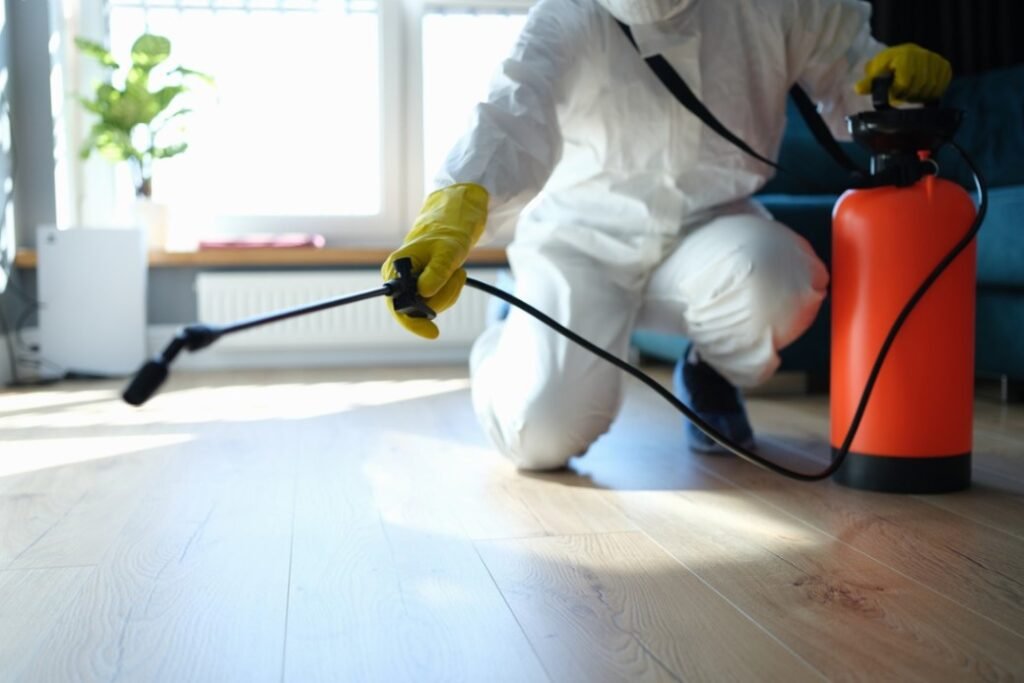Pest problems can arise unexpectedly, disrupting the comfort of our homes and the sanctity of our personal space. When pests invade, they bring with them a variety of issues, from the potential for property damage to health risks associated with certain infestations. Professional pest control services are designed to tackle these challenges effectively, using expertise and technology to eradicate unwanted guests and prevent future infestations. This article will delve into the importance of pest control, its methods, and why enlisting professional help is essential for a pest-free environment.
Understanding the Importance of Pest Control
Pests such as rodents, insects, and other critters not only pose a nuisance but can also cause significant harm to both health and property. Many pests are carriers of diseases that can affect humans and pets, while others may damage structures by gnawing through wood or insulation. Moreover, certain insects can compromise food safety by contaminating supplies. Effective pest control is crucial in safeguarding your living spaces, ensuring a healthy environment, and protecting your investments.
Common Types of Pests
Before considering pest control measures, it’s important to understand the various types of pests that may invade a home or business. Common categories include:
1. Rodents
Rodent infestations are often overlooked until significant damage has occurred. Mice and rats are notorious for chewing through wires, insulation, and even walls. Additionally, they reproduce quickly, making early detection critical to preventing larger infestations.
2. Insects
Insects encompass a wide range of pests, including termites, ants, bed bugs, and cockroaches. Termites, in particular, can cause extensive damage to the wooden structures of a home if not addressed promptly. Meanwhile, bed bugs pose a unique challenge with their ability to hide in bedding and furniture.
3. Wildlife
Raccoons, squirrels, and other wildlife can also be seen as pests when they invade residential areas. These animals can create havoc and potential danger as they rummage through garbage, damage properties, or even convey diseases.
The Pest Control Process
Pest control is not a one-size-fits-all approach; it requires a tailored strategy depending on the type of pest, the severity of the infestation, and the unique circumstances of each property. Here’s an overview of a typical pest control process:
1. Inspection
The first step in professional pest control is a thorough inspection of the premises. Exterminators look for signs of pest activity, identify entry points, and evaluate the extent of the infestation. This stage is key in determining the most effective course of action.
2. Identification
Correctly identifying the pest is crucial in addressing the problem effectively. Different pests require different treatment methods, and adhering to specific protocols tailored to the pest type ensures successful eradication.
3. Treatment
Once the assessment is complete, pest control professionals will employ appropriate treatments. This can include chemical solutions, traps, or environmentally friendly options, depending on the preferences of the homeowner and the nature of the pest.
4. Prevention
Effective pest control goes beyond merely removing pests; it also involves creating a preventative plan to deter future infestations. This may include sealing entry points, ongoing monitoring, and regular maintenance checks.
Why Hire Professionals?
Though DIY pest control methods are readily available, there are several compelling reasons to opt for professional services:
1. Expertise and Knowledge
Pest control specialists are trained to recognize different pests and understand their behaviours. Their knowledge of effective treatment options can save time and money in the long run.
2. Access to Advanced Tools and Techniques
The tools and techniques used by professionals often surpass those available to the average homeowner. High-grade pesticides and state-of-the-art extermination equipment can provide more effective and lasting results.
3. Safety Concerns
Many pesticides can be hazardous if improperly handled. Professionals are trained to use these chemicals safely and effectively, minimizing risks not only to themselves but also to residents and pets.
4. Long-Term Solutions
While DIY solutions might provide a quick fix, professional pest control offers sustainable results. Exterminators often provide follow-up services or maintenance plans that ensure pests stay away in the long term.
Cost Considerations
The cost of pest control can vary widely based on factors such as the type of pest, the extent of the infestation, and the size of the property. While some may hesitate to incur the expense, it’s important to weigh the costs against the potential damage that pests can cause. Considering the damage to property, health risks, and the loss of peace of mind, investing in professional pest control is often seen as a cost-effective solution.
Eco-Friendly Pest Control Options
In recent years, there has been a significant push towards environmentally friendly pest control methods. Many professional pest control companies now offer solutions that minimise environmental impact while ensuring effective pest eradication. Options such as integrated pest management (IPM) strategies focus on prevention and minimal pesticide use, relying on a combination of biological control, habitat manipulation, and improving sanitation. Homeowners concerned about chemicals in their living environment can discuss these eco-friendly alternatives with their pest control provider.
Conclusion
Keeping pests at bay is essential for maintaining a safe and healthy home or business. Professional pest control services offer the expertise, tools, and techniques necessary to effectively address infestations and prevent future occurrences. By understanding the importance of pest control, recognising signs of infestations, and choosing to work with qualified professionals, you can enjoy a pest-free environment all year round. Remember, it’s better to prevent a problem than to solve it after it has wreaked havoc on your property. So, don’t wait for pests to take over; be proactive in keeping them out.

